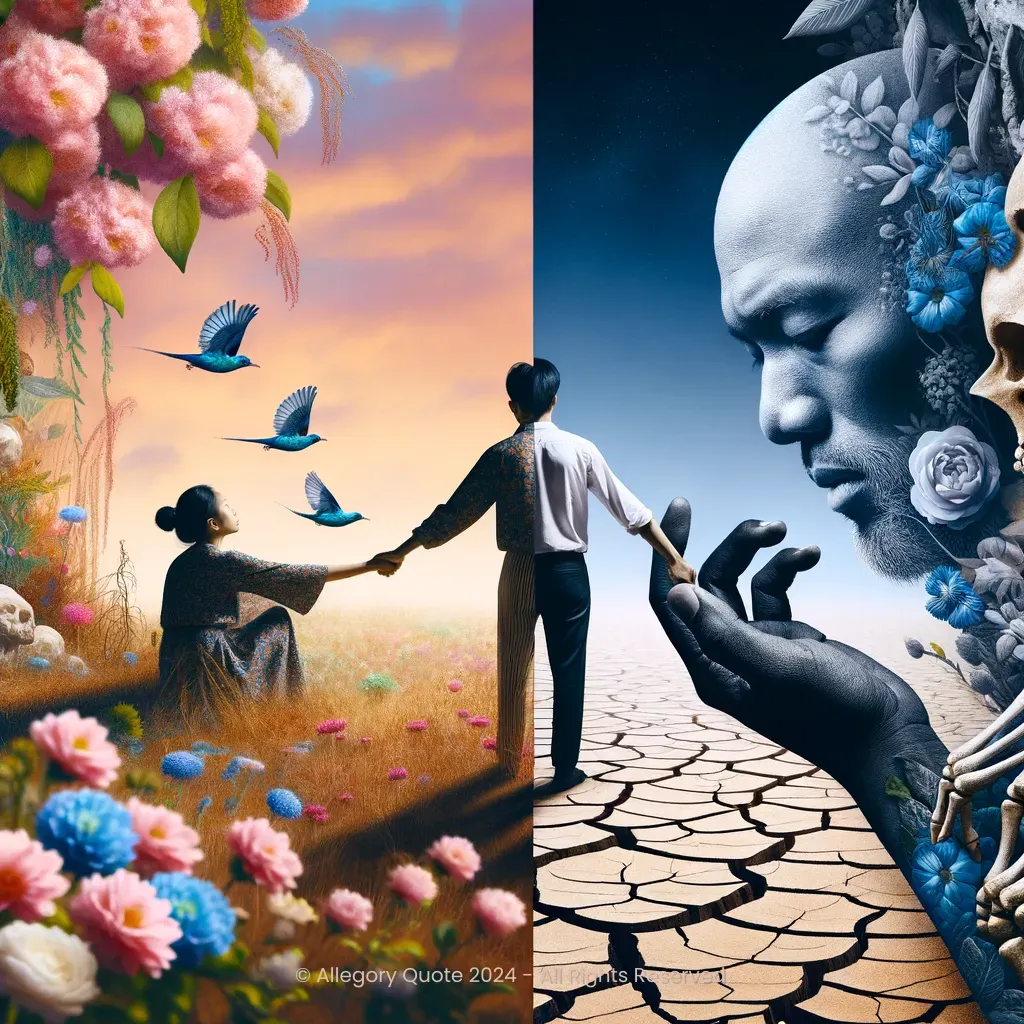Love conquers all things, except poverty and toothache

0
0
0
0
- Meaning
- This phrase humorously suggests that while love is powerful, it has its limits. Poverty and toothache represent the harsh, physical realities that can't necessarily be overcome by emotions alone. This phrase underlines the idea that while love can provide emotional support and resilience, it cannot solve all material or physical problems.
- Allegory
- The image uses the couple holding hands as the focal point, representing the power and unity of love. The blooming flowers and sunlight around them symbolize the joy and warmth that love brings. In contrast, the barren ground on one side reflects poverty, while a magnified tooth in the background signifies the pain and distraction of a toothache. This visual contrast emphasizes that although love is powerful, it is not a panacea for all material and physical struggles. The image serves to encapsulate the balance between emotional strength and practical challenges, resonating deeply with the human experience.
- Applicability
- In personal life, this phrase can serve as a reminder to value and cherish love without overestimating its practical capabilities. It encourages people to address tangible issues, such as financial stability and health, with practical solutions rather than relying solely on emotional bonds.
- Impact
- This phrase has been popular in both literary and casual contexts, often cited for its insightful humor. It has prompted discussions on the nature of love and its practical limitations, reflecting on how romantic ideals are balanced by everyday realities.
- Historical Context
- There isn't a precise date for the coinage of this particular twist on the phrase. However, George Bernard Shaw was active as a writer primarily in the late 19th and early 20th centuries. The context of early modern socioeconomic issues often influenced his work, making this witty observation particularly relevant.
- Criticisms
- Some might argue that the phrase undermines the power of love or romanticizes the struggle, potentially trivializing serious issues like poverty and health problems. Critics might contend that it underestimates the true impact of emotional support in overcoming life's difficulties.
- Variations
- Variations of this phrase exist within different contexts, often reflecting local sensibilities. For example, in some cultures, toothache could be replaced by another relatable hardship, such as hunger or illness. In various cultural interpretations, the phrase maintains its essence—a humorous acknowledgment of love's limitations.
-

Fortune favors the brave.
-

Life is struggle.
-

Parting is all we know of heaven, and all we need of hell.
-

Prophet of doom.
-

The unexamined life is not worth living.
-

What doesn't kill you makes you stronger.
-

I was working on the proof of one of my poems all the morning, and took out a comma. In the afternoon I put it back again.
-

Every time I mention your name, you live in my prayer.
-

The public service is a public trust.
No Comments